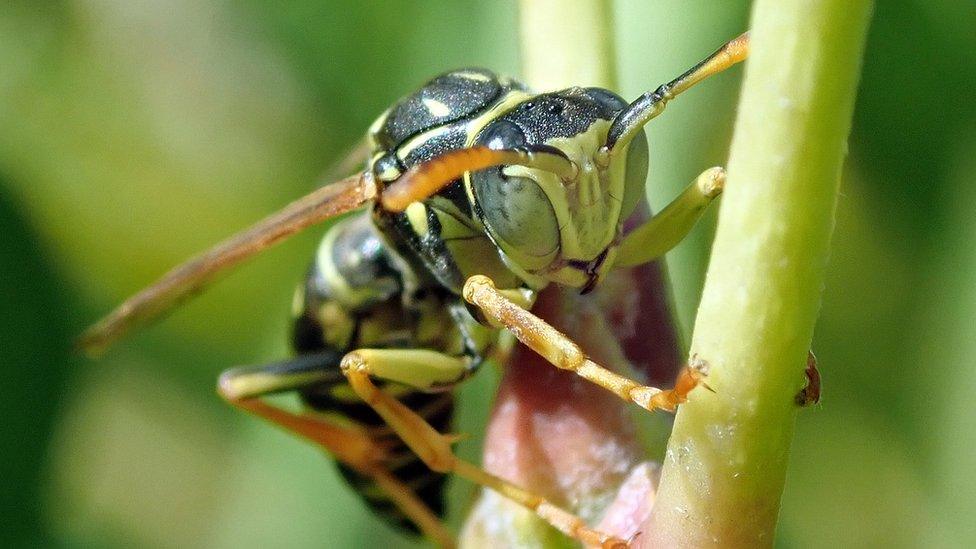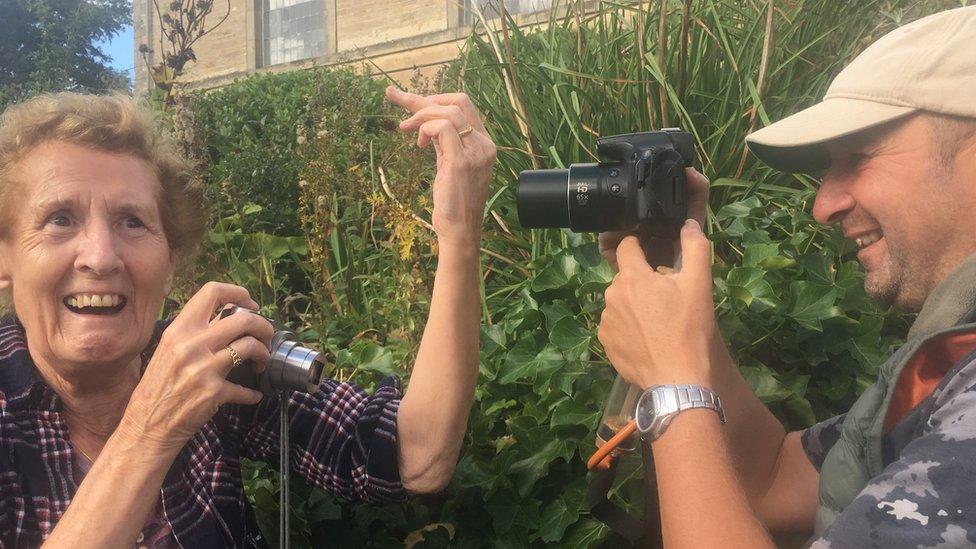Polistes Nimpha: 'First' sighting of wasp species in Warwickshire
- Published

The species of paper wasp is usually found in Southern Europe
The first sighting of a species of wasp usually found in Southern Europe is believed to have been made on mainland Britain.
Sabina George, 79, spotted the Polistes Nimpha paper wasp at Compton Verney Art Gallery, in Warwickshire, and said she knew it was "something different".
Steven Falk, an expert in pollinators, confirmed it was the insect, which is also found in west Asia.
He said it may have been brought over accidentally on a plant or in a lorry.
Mrs George visited the gallery on 21 September to view an exhibition when she spotted the wasp among the shrubbery.
"I knew it was a wasp, but I knew from the face something was different," said Mrs George, a keen amateur photographer from Kenilworth.

Sabina George, pictured with Steve Falk, said finding the wasp was "very exciting"
Mrs George contacted entomologist Steve Falk, also from Kenilworth, and the pair returned to the gallery where they found more of the wasps and he confirmed the type.
Mr Falk, who has authored books on bees and wasps, said it is believed to be the first time Polistes Nimpha has been seen in mainland Britain.
He recorded the first discovery of the species in Jersey in 2015.

Polistes Nimpha paper wasps
The wasp species is fairly common in Europe and is also found in west Asia
It is a general carnivore of other insects, like caterpillars and flies
It uses a range of open habitats, and you can find them in gardens, on farmland or out in the countryside
Paper wasps make their homes from wood pulp, like other species of wasp, but their nests are usually a lot smaller, about the size of a cricket ball
A type of paper wasp was found in London in recent years, but this particular species has not previously been recorded in Britain
Source: Steven Falk

Mr Falk said the insect was slimmer and had longer legs than common wasps found in the UK, but still had the same black and yellow banding.
He added there was no evidence it would hold any danger to native species.
"Europe is getting warmer and warmer so lots of insects are moving north," he said
"This seems to be one of these insects that are moving north because they are finding it in more European countries."
Adam McVeigh, an education officer for Warwickshire's Stratford Butterfly Farm, said it was a "really interesting discovery".
"It is fascinating to know it has made a home at Compton Verney and it will be interesting to see if it survives the winter," he added.

Follow BBC West Midlands on Facebook, external, on Twitter, external, and sign up for local news updates direct to your phone, external.
- Published11 February 2019
